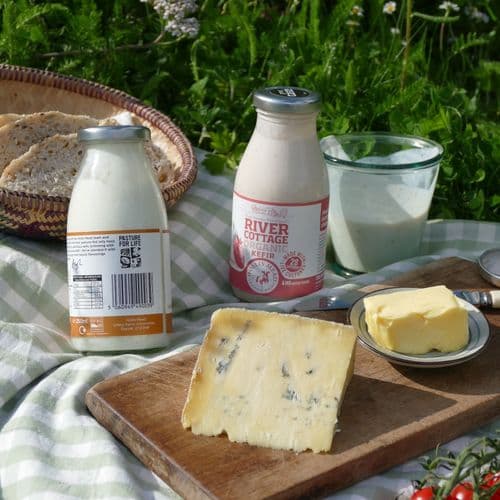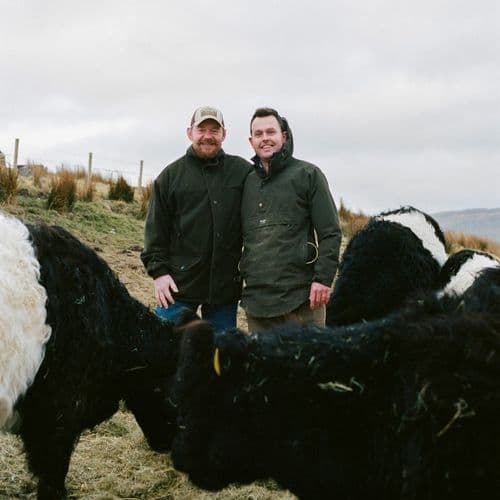General FAQs
General FAQs
Where can I buy Pasture for Life meat, dairy, and fibre?
Use our 'Where to buy' map. Filter to find Certified Enterprises and Approved Businesses near you.
I can’t find a Pasture for Life produce near me. What can I do?
Check back in regularly as we add new Certified Enterprises and Approved Businesses to the map every week. And, if you know of a local farm or business that would be a good fit for Pasture for Life then please send their details to us using our contact form. We'll get in touch.
What is the difference between a grass-fed label and 100% Pasture for Life?
To be labelled as grass-fed under DEFRA rules, animals only require 51% of their diet to be grass-based. There is no evidence that such claims are ever investigated or otherwise policed. The rest of their diet can be cereals, manufactured feeds or by-products from food manufacturing like bread and biscuit waste.
The Pasture for Life mark guarantees that an animal has been raised 100% on pasture for its entire life.
Why is pasture-fed better than grain-fed?
Like humans, livestock health depends on what animals eat and how much pressure they are put under during their working lives. We believe that allowing animals to graze a natural diet, and avoiding feeds designed to accelerate production, leads to healthier animals and healthier produce. Plus, explore the environmental impact of growing grain to feed livestock vs raising animals on pasture
Why is pasture-fed better than grass-fed?
Compared to monoculture or low species diversity pasture, diverse pastures which contain a variety of plant species — grasses, herbs wildflowers and legumes — support a diverse range of wildlife above ground and in the soil.
Do ‘Pasture for Life’ animals spend their entire lives in the fields in the UK?
Not all of them. Many PfL farms with sufficient natural shelter and well-drained ground outwinter their animals all year. Most other PfL farms have extended grazing seasons so the animals only come indoors when it is absolutely necessary for the welfare of the animals or to protect the soil for a few weeks in the winter. Although PfL Standards permit housing when conditions are not suitable for animals to be out on pasture, keeping animals housed 100% of the time is prohibited.
What’s the difference between Organic and pasture-raised?
The founders of the modern Organic farming movement shared many of the same objectives as we do, and many of our Certified Producers are also certified Organic.
The Pasture for Life certification focuses on the diet of ruminant livestock, guaranteeing 100% pasture and forage for the animal’s entire life. Organic certification only requires 60% of the animals’ feed to come from fresh or dried forage, which means that up to 40% can be derived from concentrate feeds such as soya, maize, wheat or barley.
Organic focuses on natural processes and the removal of artificial inputs. Whilst not part of our certification standards, Pasture for Life farmers find no need for costly artificial chemicals to make their fields productive. Nor do they need to use as many antibiotic or anti-parasitic treatments because their animals are less likely to be subjected to stresses which are often the root cause of illness.
What are Pasture for Life’s welfare standards?
The Pasture for Life standards reflect Organic welfare requirements, although most producers choose to operate at a higher standard of animal welfare that the standards require, which is a reflection of how highly they regard animal welfare as a key component of a healthy farming system.
Can I claim Gift Aid on donations?
No. We are a CIC, which means that donations are not tax-deductible. Through some fundraising initiatives, we partner with a charity to process tax-deductible donations on our behalf. For example, the Real Farming Trust was our Big Give charity partner and processed donations.
I’m already selling grass-fed produce. Why is the Pasture for Life mark needed?
Because customer confidence is paramount. We are driving awareness that the term ‘grass-fed’ is falling short of customer expectations in terms of how the animals are raised, and the quality of the produce. The Pasture for Life mark guarantees that animals have been fed a 100% pasture based diet. As recognition grows, so too does demand for the PfL brand within its own right.
I'd like to sell Pasture for Life meat, dairy or fibre from my shop. How can I find suppliers?
There are various ways to link with Certified Producers to source PfL certified produce.
- If you are a member, you will have access to the Livestock Marketplace, forum, and regional WhatsApp groups. Please contact your Membership Manager, Bryony, using our contact form if you need help accessing any of these.
- Your Certification Manager, Jenna, can also send messages to Certified Producers with your requirements and contact details Use our contact form.
You must become an Approved Business to sell Pasture for Life Certified produce.



